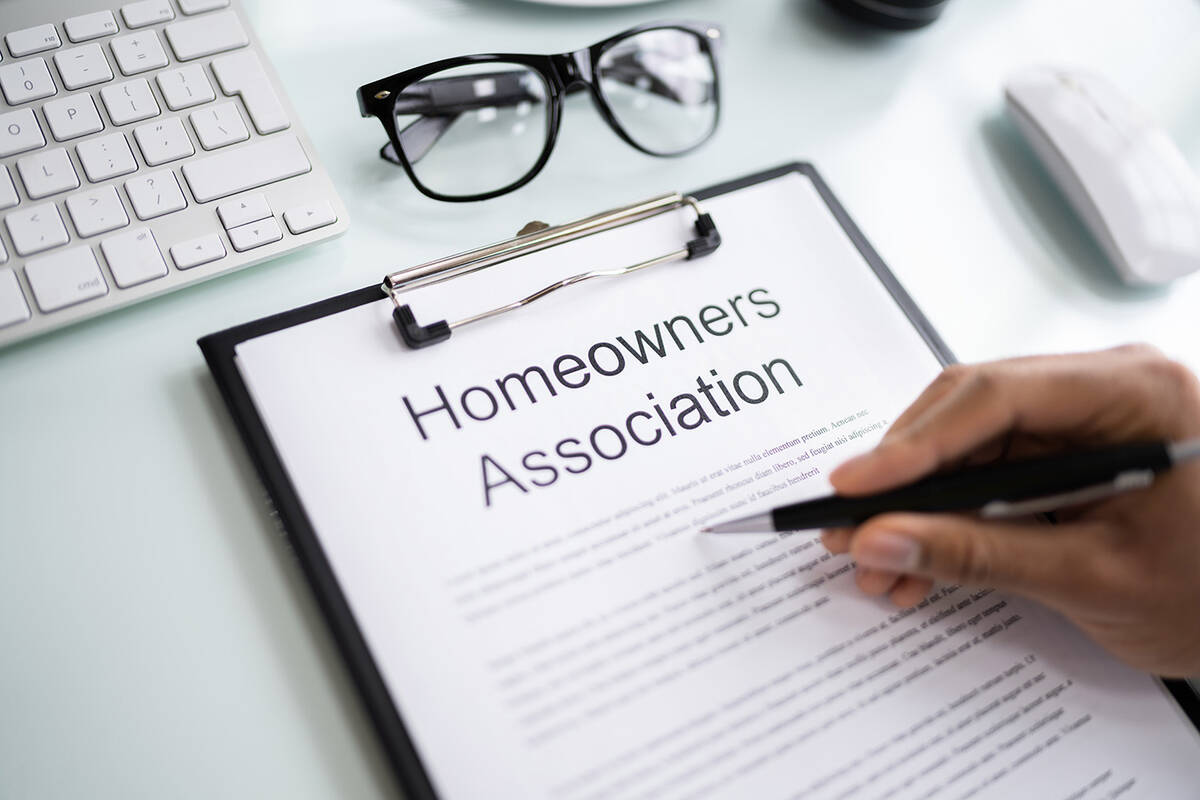‘Creepy’ behavior?: HOA discovers doggie door after condo listed for sale
Q: Ms Holland, as always, I want to thank you for your weekly column in the R-J, and your insight into homeowners associations.
I am on the board of a 306-unit condo association. Our board is active, and we take pride in our work to better our HOA.
Like others, homeowner participation is next to nothing. We’re lucky if we get 10 people at a meeting. Last election, we had 30 ballots returned.
The board recently discovered that a unit has a doggie door through the exterior wall of the unit (we discovered it because the unit is for sale, and had pictures on the listing).
We notified our management company and asked for a violation to be issued for breaching the HOA owned exterior wall, and were called “creepy” by the management company owner for monitoring units that are for sale. Our backyards are “limited common elements,” due in part to the drainage that runs through the backyards. The owner of the management company went on to say, “monitoring the limited common elements would be too time-consuming and cause way more work.”
I hit the roof.
I am of the belief that if we selectively choose which covenants, conditions and restrictions we enforce, we are opening the HOA to trouble. I also stated that if I was issued a violation for anything, it would be fought, since I have first-hand knowledge (and written proof) that the HOA is “picking and choosing” what we’re enforcing.
What insight can you offer?
A: A limited common element is a portion of an association community’s common element that is designed for the exclusive use of one or more, but not all, of the units in a condominium or homeowner association. Examples of a limited common element could include balconies, patios, parking spaces, etc. Generally speaking, your CC&Rs will outline who is responsible for the maintenance and repairs of the limited common element, the unit owner or the association.
It looks like you are a member of the board of this association. The board could, if necessary, have a vote to instruct the manager to issue a violation letter assuming that the homeowner has violated one of the association’s regulations.
In addition, the board could review the management company’s contract to see what it states as to the inspection of the community. If necessary, the board could renegotiate that section to include the inspection of the limited common elements, which most likely would be an additional fee to the association.
Q: Hello, I am a newly elected board member. Our first board meeting is fast approaching and I can find nothing in our governing documents describing the nomination and voting process for officers. I’ve reached out to the community manager, but they haven’t found anything documented yet either. Is there a statute or anything that specifies what to do in the absence of this process being formally documented?
A: Check your articles of incorporation or your CC&Rs. If a subject matter is not included in Nevada Revised Statutes 116, you would follow the specific state law that governs nonprofit organizations, often NRS 81 or NRS 82.
Generally speaking, the election of officers is conducted at the annual meeting. Officers have one-year terms. At the board meeting with the newly elected directors, the nominations can be formal or informal. The board members can vote by secret ballot for each position.
Barbara Holland, CPM, CMCA, AMS, is an author, educator and expert witness on real estate issues pertaining to management and brokerage. Questions may be sent to holland744o@gmail.com.

















